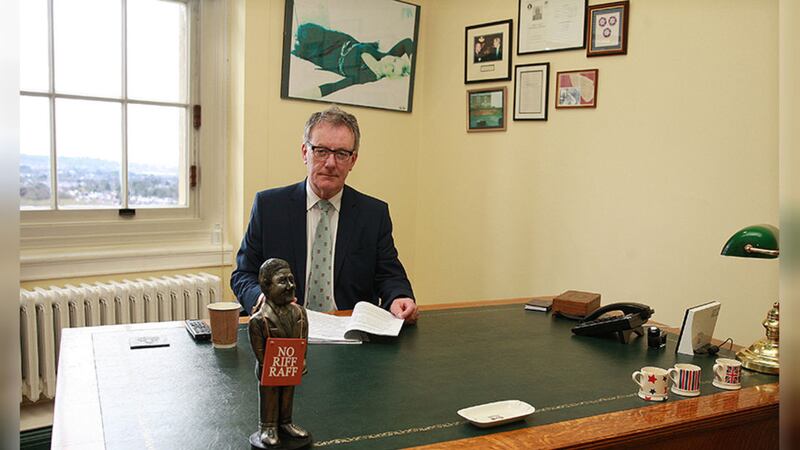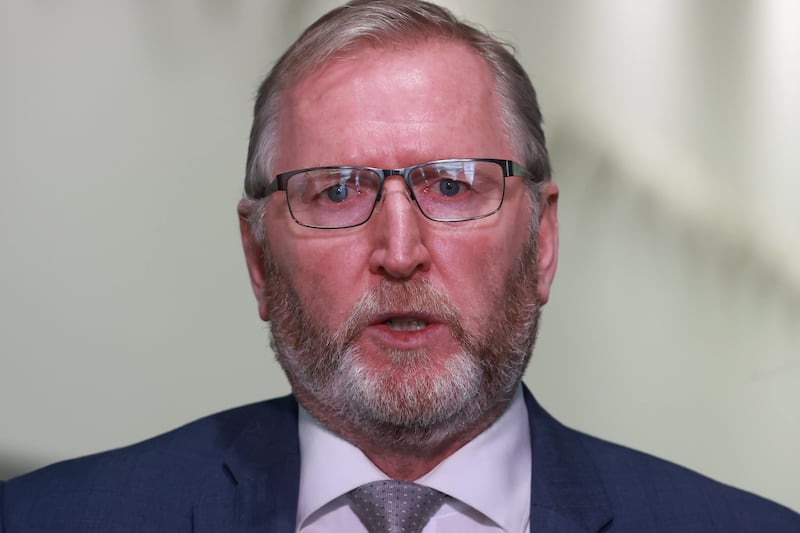Departing Ulster Unionist leader Mike Nesbitt has said he has no regrets over publicising his intention to transfer his vote to the SDLP.
In his first in-depth interview since resigning as party leader in the wake of a disappointing assembly election which saw the UUP's seat tally reduced from 16 to ten, the former UTV anchorman said Arlene Foster's anti-republican rhetoric during the campaign had created a "short cut to a united Ireland".
A fortnight ago, Mr Nesbitt brought an end to his five-year stint as UUP leader, despite a marginal increase in his party's share of the vote. However, the assembly election result saw the party which once ranked as the north's biggest, outnumbered by the SDLP on Stormont's benches with unionism losing its overall majority in the assembly.
"It's very regrettable," Mr Nesbitt said, reflecting on the poll's outcome.
"To my mind it further polarised our society, which is exactly the opposite direction of where I want to be going."
The Strangford MLA said he wanted a party that "embraces the idea of partnership".
"What I saw from the DUP was the unionism of domination and frankly that is a short cut to a united Ireland," he said.
"Presumably Arlene Foster thought the language of the crocodile was poking nationalism but my goodness they turned around and gave her a right hook."
The UUP leader, whose successor will be elected next month, said he wanted unionism to "return to the values of 1998".
"I'd like to see reconciliation, tolerance, trust building and demonstrating mutual respect," he said.
"The language of crocodiles and rogues and renegades has no place."
He said he had no regrets over stating that he would give an SDLP candidate his second preference, even though the remarks drew criticism from within his own ranks.
Mr Nesbitt said he found it "remarkable" that saying he would give a preference to a candidate who was most likely to be eliminated on the first count created "such as furore".
"I understand it was a very significant gesture but having said that unionists have been transferring to the SDLP since STV (single transferable vote) was invented and vice-versa," he said.
He said he was not surprised by the response to his comments but was nevertheless "a bit depressed by some of the personal, shallow, knee-jerk reaction".
"We've got to get beyond that and start thinking about who we are and how we share this piece of land," he said.
The departing Ulster Unionist leader, who conceded he was deflated in the aftermath of the March 2 election, is sceptical about unionist unity, though believes co-operation between unionist parties has merit.
He said the idea of a single unionist party is a "myth". The DUP's raison d'etre is to "put the party first", Mr Nesbitt said, whereas the UUP credo is "country before party".
He said his party co-operated with its larger unionist rival in the 2015 general election in an "anti-abstentionist pact" but that a unified platform during a Stormont election would be unrealistic due to policy differences.
"In the six months that I spoke to Peter Robinson (in 2015) I don't remember a single sentence about policy – this was about pro-union MPs," he said.
"But in an assembly election you would have to do policy and that would be difficult."
Mr Nesbitt said he will now concentrate his energies on "outreach", which involves reconciliation and a greater effort to get unionism's message across, outside of the north.
"We need to be confident enough to say this is who we are and this is what we believe but we also have to recognise and celebrate the fact that nationalists are not going away, republicans are not going away," he said.
The Strangford MLA believes Stormont's first opposition for more than 40 years was a success and that its influence would have grown had the mandate lasted longer than eight months.
"I question whether we would have had an election if there hadn't been an opposition," he said.
"The history of the last 10 years was that the small parties were used for cover when there was a problem – the big parties would beat up the little ones – but this time around there was nowhere to hide."







